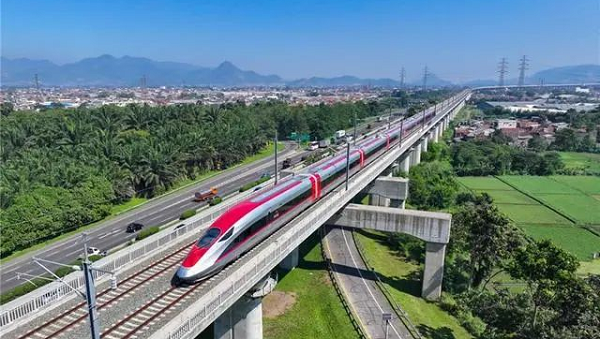Milestone achieved in chip sector
Tech firm reports breakthrough in key material used for semiconductors
China saw a game-changing breakthrough in photoresist – a key material used in producing semiconductors – which successfully passed mass production tests recently, according to a high-tech firm in Wuhan, Hubei province.
It marks the first time that a Chinese entity successfully produced the ingredients and formula needed for photoresist, and it owns full proprietary intellectual property rights for such products, which is significant in gradually alleviating the prevailing constraints within the integrated circuit production sector as many aspects have relied on imports, said a note replied to China Daily by Wuhan Taiziwei Optoelectronics Technology Co Ltd, which was supported by Huazhong University of Science and Technology – both located in Hubei.
Photoresists, as described by the company's researchers, serve as a light-sensitive material integral to the photolithography process in chip fabrication, akin to the exposure process in traditional camera film. During chip production, a wafer is coated with photoresists and a circuit pattern is delineated on a mask. When light penetrates the mask and exposes the photoresist, the desired circuit layout emerges on the wafer following a sequence of procedures.
The cutting-edge photoresists produced by Taiziwei – dubbed T150A – achieve a stunning resolution of 120 nanometers in optical lithography with greater tolerance and higher stability compared with global counterparts, the company said.
The company also said its product works nicely with the post-etching process, offering superior sidewall verticality in dense patterns after etching. Such features render the product able to benchmark KrF – an industry-leading photoresist series.
"Taiziwei started from the development of raw materials and ultimately obtained formula technology with independent intellectual property rights. It is just a beginning. Our team will continue to develop a series of photoresist products with cutting-edge technologies for different scenarios, supporting the development of relevant industries," the note said.
"The rise of the domestic semiconductor industry now enjoys a situation in which different voices and perspectives engage in thorough debate and competition, fostering intellectual discussion and innovative development. There will be many new technologies and businesses emerging in this field, and technological innovation is the key to survival," it added.
Experts say that over the past decade, China's semiconductor sector has not only maintained a high-speed growth momentum in scale, but has also achieved a leap in quality. The level of localization has greatly improved, leading to the emergence of a group of leading enterprises, making it one of the important driving forces for economic growth.
At a recent industry forum, Sun Yong, investment manager of a private equity fund management company in Shanghai, said China's semiconductor equipment, chip materials, electronic design automation and chip intellectual property will see a further leap in localized development.
Unlike the previous cycle driven mainly by smartphones and mobile internet, the current chip sector development is led by artificial intelligence and the energy revolution, Sun said.
Liu Linfa, director for development research at the Shanghai Integrated Circuit Industry Association, said that in the next 10 years, industrial technology will continue to advance, device architecture will innovate and new technologies and products will be applied in more scenarios. Challenges will also arise, necessitating national policy support and the driving role of major projects, international talent entrepreneurship, increased investment and cluster-based development.
Fan Feifei contributed to this story.
Contact the writers at liuyukun@chinadaily.com.cn




